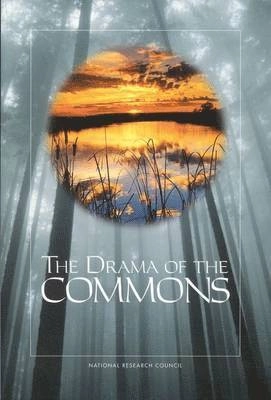The "tragedy of the commons" is a central concept in human ecology and the study of the environment. It has had tremendous value for stimulating research, but it only describes the reality of human-environment interactions in special situations. Research over the past thirty years has helped clarify how human motivations, rules governing access to resources, the structure of social organizations, and the resource systems themselves interact to determine whether or not the many dramas of the commons end happily. In this book, leaders in the field review the evidence from several disciplines and many lines of research and present a state-of-the-art assessment. They summarize lessons learned and identify the major challenges facing any system of governance for resource management. They also highlight the major challenges for the next decade: making knowledge development more systematic; understanding institutions dynamically; considering a broader range of resources (such as global and technological commons); and taking into account the effects of social and historical context. This book will be a valuable and accessible introduction to the field for students and a resource for advanced researchers.Table of Contents
Front Matter 1 The Drama of the Commons Part I: Resource Users, Resource Systems, and Behavior in the Drama of the Commons 2 Common Resources and Institutional Sustainability 3 Unequal Irrigators: Heterogeneity and Commons Management in Large-Scale 4 Factors Influencing Cooperation in Commons Dilemmas: A Review of Experimental Psychological Research 5 Appropriating the Commons: A Theoretical Explanation Part II: Privatization and Its Limitations 6 The Tradable Permits Approach to Protecting the Commons: What Have We Learned? 7 Common Property, Regulatory Property, and Environmental Protection: Comparing Community-Based Management to Tradable Environmental Allowances Part III: Cross-Scale Linkages and Dynamic Interactions 8 Institutional Interplay: The Environmental Consequences of Cross-Scale Interactions 9 Cross-Scale Institutional Linkages: Perspectives from the Bottom Up Part IV: Emerging Issues 10 Scientific Uncertainty, Complex Systems, and the Design of Common-Pool Institutions 11 Emergence of Institutions for the Commons: Contexts, Situations, and Events 12 An Evolutionary Theory of Commons Management 13 Knowledge and Questions After 15 Years of Research About the Contributors Index
Åtkomstkoder och digitalt tilläggsmaterial garanteras inte med begagnade böcker





















